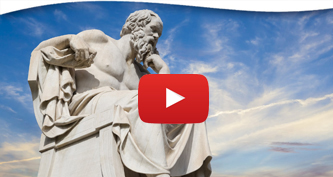Mondays, 7:00 – 8:30 p.m. CT
April 29 - May 20 (4 classes)
TS Members: $60 • Nonmembers: $75
 The Neoplatonic tradition is part of the source material for Theosophy and is part of the foundation for later developments in Western esoteric traditions. This course examines Neoplatonic philosophy from the perspective of esotericism, including both theoretical knowledge and methods. Theurgy, the “Divine Magic” that is considered a form of spiritual alchemy, will be explored, as will various forms of meditation. This course will provide a grounding in the essentials of Neoplatonism that will enhance the understanding of Theosophical philosophy as well as enable deeper study of source material. It will also include an introduction to methods of spiritual practice.
The Neoplatonic tradition is part of the source material for Theosophy and is part of the foundation for later developments in Western esoteric traditions. This course examines Neoplatonic philosophy from the perspective of esotericism, including both theoretical knowledge and methods. Theurgy, the “Divine Magic” that is considered a form of spiritual alchemy, will be explored, as will various forms of meditation. This course will provide a grounding in the essentials of Neoplatonism that will enhance the understanding of Theosophical philosophy as well as enable deeper study of source material. It will also include an introduction to methods of spiritual practice.
Registration includes on-demand access to recordings of all the classes, which can be viewed for two weeks following the date of the final class. Late registrants will receive recording links to all missed sessions for on-demand viewing.
Course Topics:
Week One: An Introduction to Neoplatonism and Its Legacy
This class will provide an overview of Neoplatonic philosophy and practice. It will discuss its antecedents and development. The Neoplatonic understanding of philosophy as an esoteric path will be explored. Essential themes in Neoplatonism will be introduced as will the pre-eminent schools. Participants will be introduced to important figures in Neoplatonism, including Ammonius Saccas, Hypatia, Porphery, and Origen.
Week Two: Plotinus, the Father of Neoplatonism
With Plotinus, Neoplatonism is born. Recognized as one of the world’s great mystics, his teachings are preserved in The Enneads, and his life’s example is told by his disciple, Porphery. This class will discuss the most important aspects of the philosophy of Plotinus. This includes how unity becomes multiplicity and his teachings about the path back to a state of unity through philosophical contemplation. The teachings of Plotinus on the nature of evil and his critique of the Gnostics of his time are also contemplated.
Week Three: Iamblichus, The Philosopher-Magician
Iamblichus was a disciple of Porphery. Iamblichus made several important contributions to Neoplatonism that influenced later esotericism. He focused on divine embodiment and understood the various levels of being to include many divine entities. Iamblichus developed the practice of Theurgy, “Divine Magic,” within Neoplatonism. Through this ritual practice, the magician returns to unity with The One. His theories strongly influence all later Western Hermetic practices.
Week Four: Proclus, The Last Pagan Philosopher
Proclus wrote numerous commentaries on Plato’s dialogues. His understanding is that Plato’s work was divinely inspired and that there were additional, hidden, meanings under the text. His methods are similar to those used by HPB in her work and reveal mystical understanding. Proclus also further explores the henads, which are divine hierarchies of beings. This class explores some of his surviving works and themes that emerge.
 Gwendolyn Reece joined the Theosophical Society in America in 1999. She has taught with the National Capital Lodge since 2000 and was happy to be able to teach for the National Theosophical Society for the past two years. She is a Witch and a Wiccan High Priestess in the Assembly of the Sacred Wheel, running Theophania coven in Washington, D.C. She is the President of the Sacred Space Foundation, which runs the largest annual esoteric conference on the East Coast that is specifically intended for intermediate to advanced practitioners. She is particularly close to the ancient Hellenic Theoi, especially Apollon and Athena, whom she serves as priestess. She has also been a member of the faculty at American University for more than 25 years.
Gwendolyn Reece joined the Theosophical Society in America in 1999. She has taught with the National Capital Lodge since 2000 and was happy to be able to teach for the National Theosophical Society for the past two years. She is a Witch and a Wiccan High Priestess in the Assembly of the Sacred Wheel, running Theophania coven in Washington, D.C. She is the President of the Sacred Space Foundation, which runs the largest annual esoteric conference on the East Coast that is specifically intended for intermediate to advanced practitioners. She is particularly close to the ancient Hellenic Theoi, especially Apollon and Athena, whom she serves as priestess. She has also been a member of the faculty at American University for more than 25 years.
Program Format
This is a live, interactive online program that will also be recorded. Our goal is to send recordings to you within two business days, often sooner. Recordings will be available for on-demand viewing for two weeks following the date of the final class.
Software Platform
Zoom for Windows, Mac, or mobile device; minimum recommended network bandwidth 1.5 Mbps. Please download Zoom for free at zoom.us/download, and test your connection at zoom.us/test. New to Zoom? Check out http://www.theosophical.org/FAQ. Please email webinars@theosophical.org for further information.


